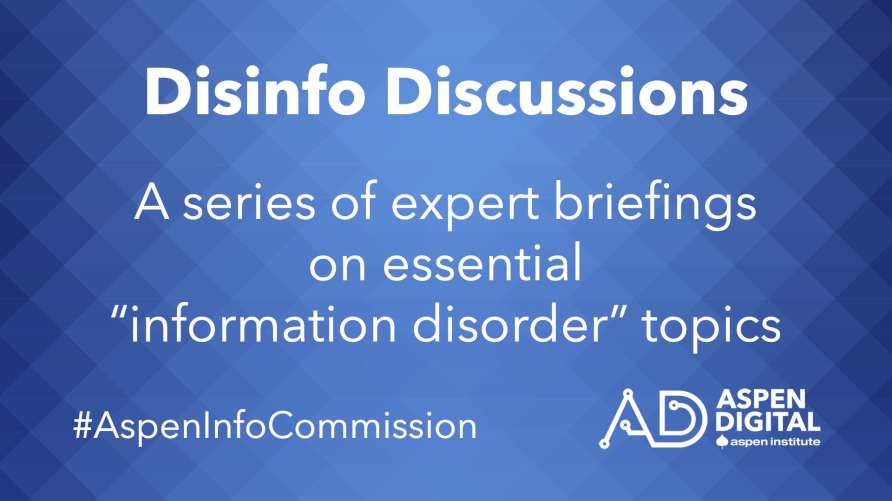
The Aspen Institute has issued the results of its much heralded 16-person Commission on Information Disorder on how to protect the public from misinformation. The commission on disinformation and “building trust” was partially headed by Katie Couric who is still struggling with her own admission that she edited an interview to remove controversial statements by the late Justice Ruth Bader Ginsburg. The Aspen recommendations however are a full-throated endorsement of systems of censorship.
The findings and recommendations are found in an 80-page report on how to combat “disinformation” and “misinformation,” which are remarkably ill-defined but treated as a matter of “we know when we see it.” From the outset, however, the Commission dismissed the long-standing free speech principle that the solution to bad speech is better speech, not censorship. The problem is that many today object to allowing those with opposing views to continue to speak or others continue to listen to them. The Commission quickly tosses the free speech norm to the side:
“The biggest lie of all, which this crisis thrives on, and which the beneficiaries of mis- and disinformation feed on, is that the crisis itself is uncontainable. One of the corollaries of that mythology is that, in order to fight bad information, all we need is more (and better distributed) good information. In reality, merely elevating truthful content is not nearly enough to change our current course.”
In addition to Couric, the Commission was headed by Color of Change President Rashad Robinson and Chris Krebs, former director of the Cybersecurity and Infrastructure Security Agency. Robinson was also a notable choice since he has been one of the most outspoken advocates of censorship. While some of us have been denouncing the expanding system of censorship by companies like Facebook, Robinson was threatening boycotts if the companies do not “rein in” those considered racists or spreaders of misinformation.
The Commission also includes Prince Harry who has referred to free speech protections under the First Amendment as “bonkers.”
Much of the report seems more aspirational in recommendations like “endorsing efforts that focus on exposing how historical and current imbalances of power, access and equity are manufactured and propagated with mis- and disinformation — and on promoting community-led solutions to forging social bonds.”
The Commission also appears to endorse the movement against “objectivity” and “both sideism” in the media: “Commissioners also discussed the need to adjust journalistic norms to avoid false equivalencies between lies and empirical fact in the pursuit of ‘both sides’ and ‘objectivity,’ particularly in areas of public health, civil rights, or election outcomes.”
Former New York Times Magazine reporter Nikole Hannah-Jones was one of the journalists who pushed the New York Times to denounce its own publication and promise to curtail columns in the future. In so doing, she railed against those who engage in what she called “even-handedness, both sideism” journalism. Likewise, Stanford Communications Professor Emeritus Ted Glasser has publicly called for an end of objectivity in journalism as too constraining for reporters in seeking “social justice.” In an interview with The Stanford Daily, Glasser insisted that journalism needed to “free itself from this notion of objectivity to develop a sense of social justice.” He rejected the notion that journalism is based on objectivity and said that he views “journalists as activists because journalism at its best — and indeed history at its best — is all about morality.” Thus, “journalists need to be overt and candid advocates for social justice, and it’s hard to do that under the constraints of objectivity.”
However, the most chilling aspect of the report is the obvious invitation for greater forms of censorship. It calls for the government to become involved in combatting misinformation, the scourge of free speech and an invitation for state controls over speech. Ironically, there is no need for such direct government involvement when social media companies are acting as the equivalent of a state media in the censorship of...
Read More HERE
No comments:
Post a Comment
Test Word Verification